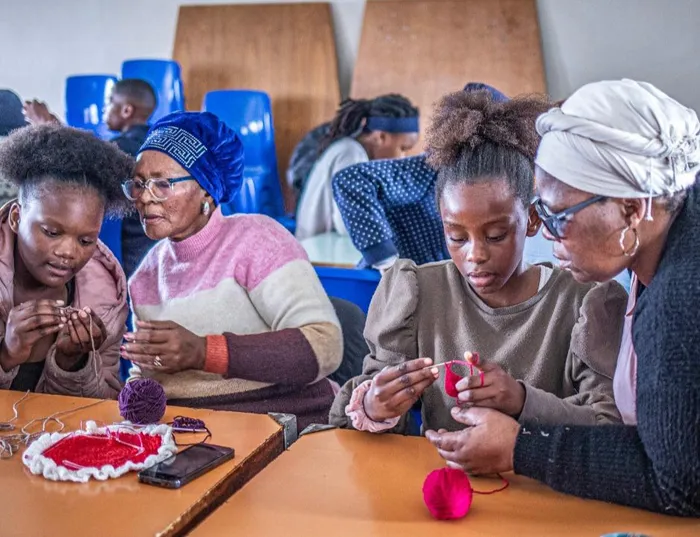Why we should honour, support the heroines who walk quietly every day

Ikamva Labantu, an organisation formed 60 years supports a network of women called Afternoon Angels, who open their homes to provide afterschool care to keep children safe.
Image: IKAMVA LABANTU
ON WOMEN’S Day, as we remember the fearless women who marched against the Pass Laws in 1956, there are millions who walk quietly through our communities every day.
These are women who, through tireless care and unseen labour, hold together the fragile fabric of our society.
The phrase “Wathint’ abafazi, wathint’ imbokodo” – you strike a woman, you strike a rock – is not just a rallying cry, it’s a reflection of daily reality.
In a country crying out for healing and rebuilding, there is no more powerful force to walk alongside than women. It is time to build with them, invest in them, and trust their leadership.
Ikamva Labantu, the organisation I am privileged to lead, was born from the quiet but radical resistance of women. Over 60 years ago, our founder Helen Lieberman, defied segregation laws to follow a sick child into Langa. What she encountered was not hopelessness, but strength.
Women who were surrounded by local children, who were rolling up their sleeves, cooking for many with little, organising informal schools and caring for their neighbourhood’s elders. She found human nature at its best.
Helen joined these women and together, these ‘Mamas’ who held communities together with no resources, no rights and who defied the odds, planted the seeds of our community-led and women-led organisation.
Ikamva Labantu means “the future of the people” and its work is the work of women. It is the work of nation building. Today, 95% of Ikamva Labantu’s staff are women, and the majority come from the same communities they are serving, giving us intimate insights into our communities’ needs.
We serve over 1 400 elders through 17 community-led senior centres and for those who are homebound, through local community-based workers who provide rehabilitative care alongside our Occupational Therapy team.
We support a network of women called Afternoon Angels, who open their homes to provide afterschool care to keep children safe and off the streets so they can enjoy a better future.
In Khayelitsha, our model preschool serves as a hub for training Early Childhood Development (ECD) practitioners and principals, because we know that quality, early education is the most powerful investment a country can make in its future.
We also know this: when you train a woman, you uplift a household. And when you support a local woman to support her community, you ignite a cycle of change that can last for generations.
Yet, especially in under-resourced communities, the majority of women carry the greatest burden – of care, of poverty, of violence. Women are less likely to benefit from capital investment or formal recognition. This despite global research consistently affirming what we have seen on the ground: that women are more likely than men to invest their earnings and skills back into their families and communities – creating a ripple effect that benefits all.
It is not only about generating opportunities for individual women; it is about systemic change that benefits the whole economy. This concept, often called “womenomics,” is not just a feel-good slogan – it is smart economics.
When I was growing up on the Cape Flats, there was so much poverty and gangsterism that I believed my success story would be that I “got out.”
Now as I work alongside the women of our townships, I know that the real heroes are the people who stay and against all the odds continue to build their fellow humanity and community. So, on Women’s Day as we honour the women who walked in 1956, we must also honour those who walk quietly every day and support them as they build our future.
Davids is Ikamva Labantu director